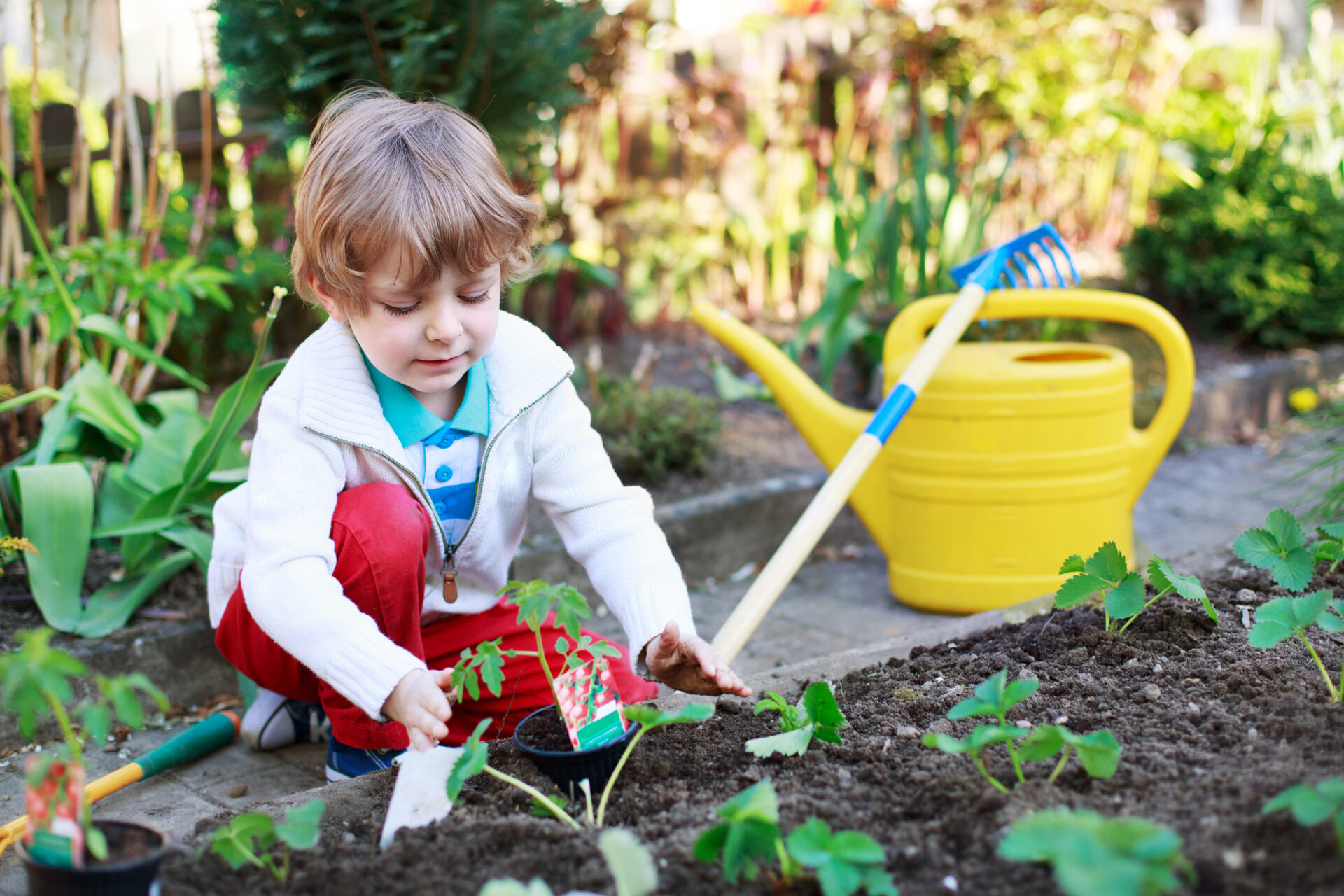News

Get kids gardening
Spending time in green spaces and gardens is good for our physical and mental health, and this includes infants and children. Studies have shown that levels of depression and anxiety can be reduced when we spent time in green spaces.
May saw the return of National Children’s Gardening Week, which aims to help children to have fun in the garden, and learn how to carry out simple, quick gardening projects. As Autumn approaches there’s never been a better time to get children out into the garden and outdoor spaces.
Healthy reasons to garden
There are lots of great reasons to encourage children into gardens and green spaces. Time outside gives them a chance to get their hands dirty and learn about the relationship between growing plants and the things they eat. Studies have shown significant reductions in depression and anxiety, improved social interactions, and other wider effects, including opportunities for vocational development as they grow up.
In this year’s RHS Chelsea Flower Show, children were invited to take part in the show for the first time in a new initiative to spark a love of gardening. The Princess of Wales spent time with 100 children, joining them on a trail through the show gardens and a picnic. Whilst at the show, children also had the opportunity to learn about sustainable gardening, seen in a new Sustainable Garden Product category packed with ideas about simpler, less cultivated approaches to gardening, and how to grow plants and attract wildlife without using chemicals.
Chemical free gardening
This begins with avoidance of glyphosate – a synthetic chemical used as an ingredient in weed killers such as Roundup, widely used in gardens and green spaces. Exposing children to has potentially toxic effects. The IARC class glyphosate as ‘probably carcinogenic’. Although the effects of exposure in children are not yet fully understood, evidence is emerging that it can cause fatty liver disease and metabolic syndrome, a collection of symptoms that increase risk of heart disease, diabetes, and stroke.
For more information on chemical free gardening read the PAN Guide to Gardening.
Ideas to get children gardening, in chemical free spaces
- National Children’s Gardening Week offer a wide range of eco friendly ideas to get children involved in their own gardening projects, and a free Peter Rabbit gardening pack.
- If you have your own garden, plant wild areas that will not only create areas of natural interest, but also habitats for insects and bees.
- Set up a gardening group at your child’s school to teach children how to grow organic food, starting with fast growing plants such as lettuce, radish, beans, and peas.
- Ask your school how weeds are managed – set up a volunteer group for children and parents to keep the weeds under control naturally without using chemicals.
- Weeds in children’s play areas can create a trip hazard, but if they are managed by spraying chemical herbicides such as glyphosate, these substances can drift onto other surfaces in play areas at home, or in playgrounds. ROSPA recommends use of non-chemical alternatives in any area where children play.
- Ask your local council about their policy on weedkillers. Some local authorities have already stopped using glyphosate sprays in public areas. Check what’s happening in your area here.
Further reading
Learn more about glyphosate






